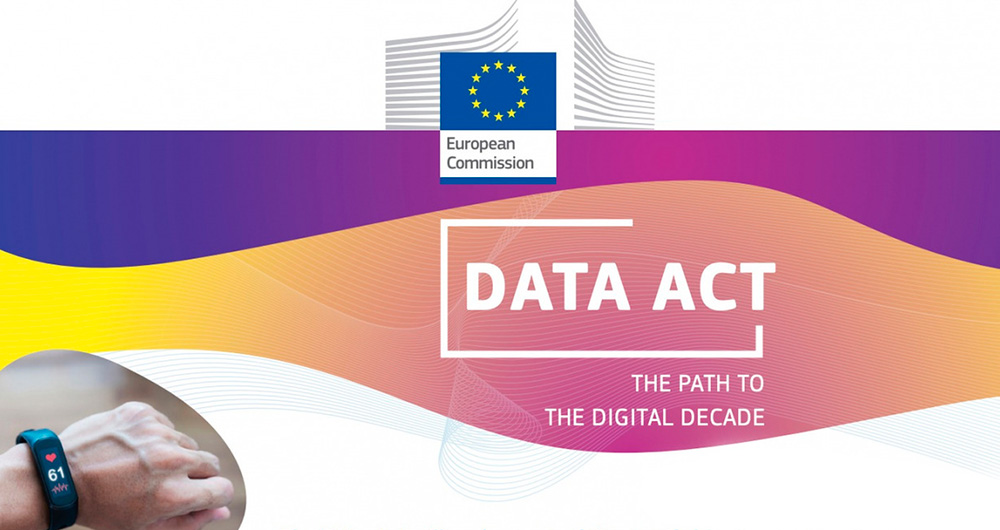New regulation on open data and re-use of public sector information under scrutiny
Fecha de la noticia: 26-07-2022

Last December, the Congress of Deputies validated Royal Decree-Law 24/2021, which transposed several European directives, including Directive (EU) 2019/1024 on open data and the re-use of public sector information. This directive seeks to broaden the scope of application of the previous regulation, bringing legal guarantees and obligations in line with the current innovation landscape, where technologies such as Artificial Intelligence (AI) could benefit from increased availability of public sector data. This initiative is aligned with the European Union's Data Strategy for the creation of a single data market where information flows freely between States and between sectors.
With this Royal Decree-Law, the provisions of Act 37/2007, of 16 November, on the re-use of public sector information were amended, providing new features regarding obligated parties, types of data to be considered of special interest or procedures for processing requests, among other aspects. As the Directive points out, the aim of this new regulation is to promote the re-use of public sector information in a context of digital transformation, seeking to promote the "intelligent use of data", as well as the "creation of new services and applications based on the use, aggregation or combination of data". It was therefore essential to update the regulatory framework as the previous provisions were "outdated with respect to these rapid changes and, as a result, the economic and social opportunities offered by the re-use of public data may be lost".
These new developments have been analysed by a team coordinated by researchers Julián Valero and Rubén Martínez, as part of the project "Open data and reuse of public sector information in the context of its digital transformation: adapting to the new regulatory framework of the European Union (ref. PID2019-105736GB-I00)", funded by the Ministry of Science and Innovation.
Main findings of the study
Based on these premises, the study undertakes a systematic analysis of the new regulatory framework, highlighting the following conclusions:
- The European regulation is limited in its ability to establish clear and precise obligations to facilitate access to public sector information for re-use. In this regard, the referral to the Member States' regulation constitutes an added difficulty in facilitating a European market for re-use.
- The subjective scope of application of the rules on re-use has been extended to include new subjects to which the rules apply. Consequently, these entities have to adjust the management of the data they generate to the new regulation, which is a major challenge insofar as it does not always coincide with the scope of application of the regulation on common administrative procedure and the legal regime of the public sector, a regulation that has served to boost technological modernisation in this area.
- The new category of high-value data is one of the main novelties of the new regulation. Beyond the measures to be adopted at the European level, the study suggests that the States adopt a broader perspective than that envisaged in the Directive. Thus, it is proposed not only to include certain private subjects but also to establish new sets of data outside those established by the European Union, such as those referring to public sector procurement.
- The Directive also establishes that "Member States should ensure that practical arrangements are in place that help re-users in their search for documents available for re-use". In this sense, the study suggests taking advantage of the current parliamentary procedure of the draft act to establish a specific regulation in Spanish legislation, since these are instruments of great relevance for the achievement of the objectives set by the European Union, especially with regard to Artificial Intelligence.
- It is essential to promote a regulation that adequately addresses the issue of the liability of public sector entities. In particular, the study considers that the current regulation may generate legal uncertainty for re-users, who will not find an adequate legal framework to promote digital transformation initiatives based on the re-use of public sector information.
- Although the new regulation allows public bodies to continue to set conditions that restrict the re-use of data or limit competition, this possibility is conditional on the respect of certain safeguards. This has given an important boost to the use of open licences. However, the fact that there is a wide diversity in the conditions set by each agency creates significant dysfunctions for re-users, which would justify, according to the study, the creation of an open governmental licensing model based on legal regulation.
- A more precise regulation of the administrative procedure to be followed by public bodies when dealing with requests for access for re-use should be established. According to the study, special attention should be paid to the grounds for refusal, as they are too generic in their current wording. It is also considered necessary to review the regulation of administrative silence from the perspective of European legislation, which is particularly demanding with regard to the reasons for refusing access. Finally, it is proposed that an independent control body be set up, so that complaints lodged with this body can replace ordinary administrative appeals, a possibility expressly permitted by the legislation on common administrative procedure.
These are some of the main contributions of the study, the final result of which has materialised in the book "Datos abiertos y reutilización de la información del sector público", published by the Comares publishing house, the first book in Spain to comprehensively study the new legal regime in this area, integrating European regulations and state legislation.














